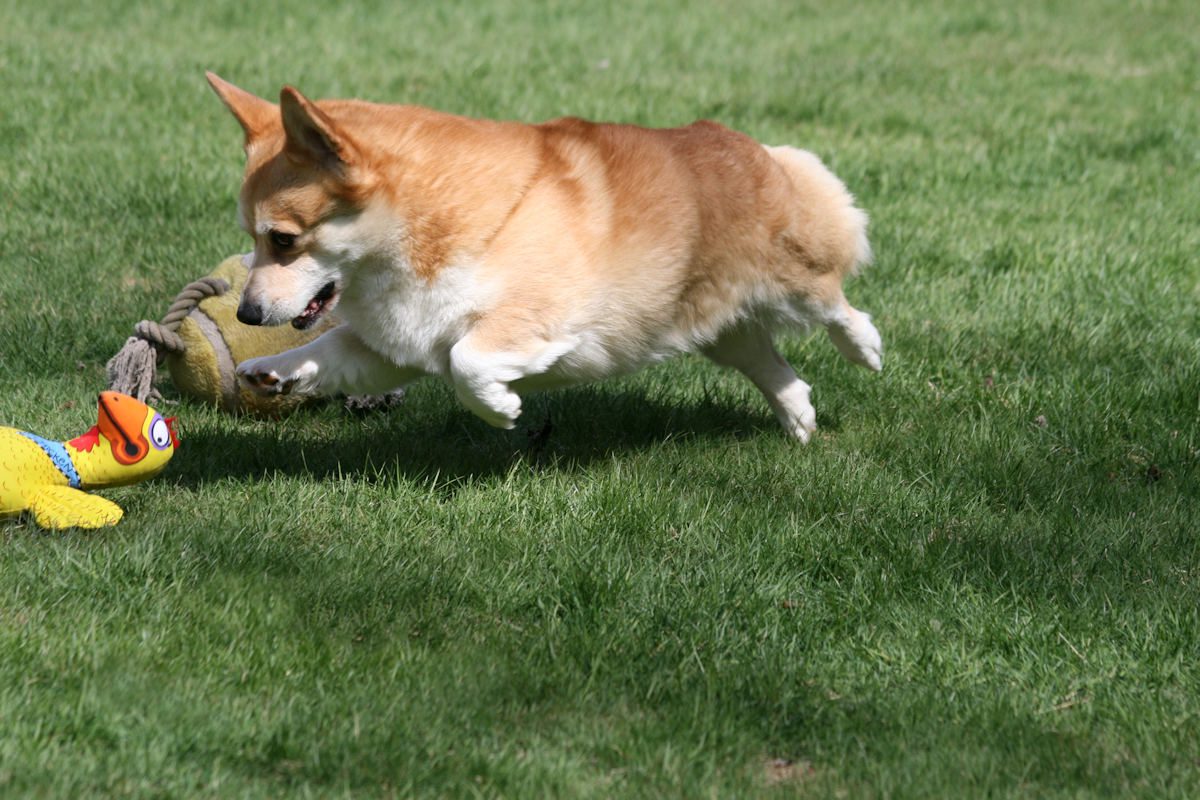
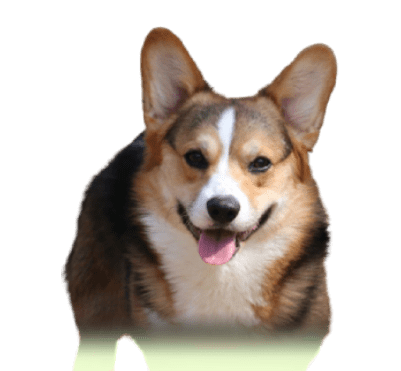
Pembroke Welsh Corgis
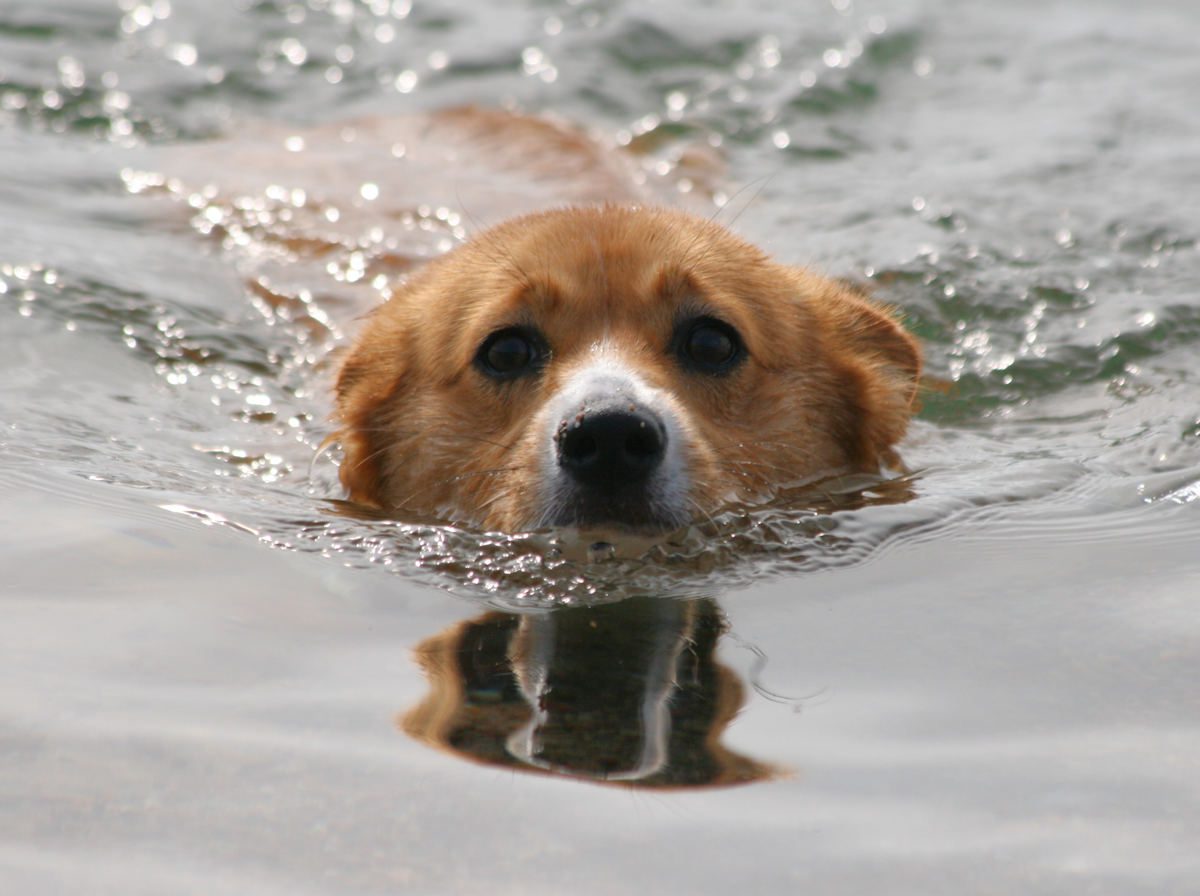
Areas in quotes are taken, by gracious permission of the author Susan M. Ewing, from the book, "Pembroke Welsh Corgi: Family Friend and Farmhand."
"Pembroke Welsh Corgis have been around for hundreds of years, and over that time they have evolved into intelligent, sturdy, independent and bold dogs. Farmers of the Welsh hills wanted a dog that was an "easy keeper," one that wouldn't eat them out of house and home. They wanted a guard dog as well as a family pet for the children. They wanted a useful dog, a dog that would drive the cattle or geese to market and maybe even retrieve game. And they wanted a dog with a "wash-and-wear" coat that would easily shed the mud of the fields without a lot of fussy grooming. In short, they wanted a Corgi."
Today, "the Corgi is still a compact, sturdy dog that makes both a diligent worker and a dedicated family dog. Because Corgis are herding dogs, they have been bred to be independent thinkers as well as quick, busy and active dogs. These dogs are not for everyone, although most Corgi owners think there is no other breed!"
"The Corgi has what is called a 'double coat,' meaning that a softer, finer coat lies under its harsher, heavier outer coat. This outer coat protects the dog from the elements, while the undercoat provides warmth and dryness."
The coat's medium length also prevents dirt and burrs from clinging, and any dirt that does stick can be brushed away easily. The coat doesn't mat or tangle, either, which can be a real plus in a family pet.
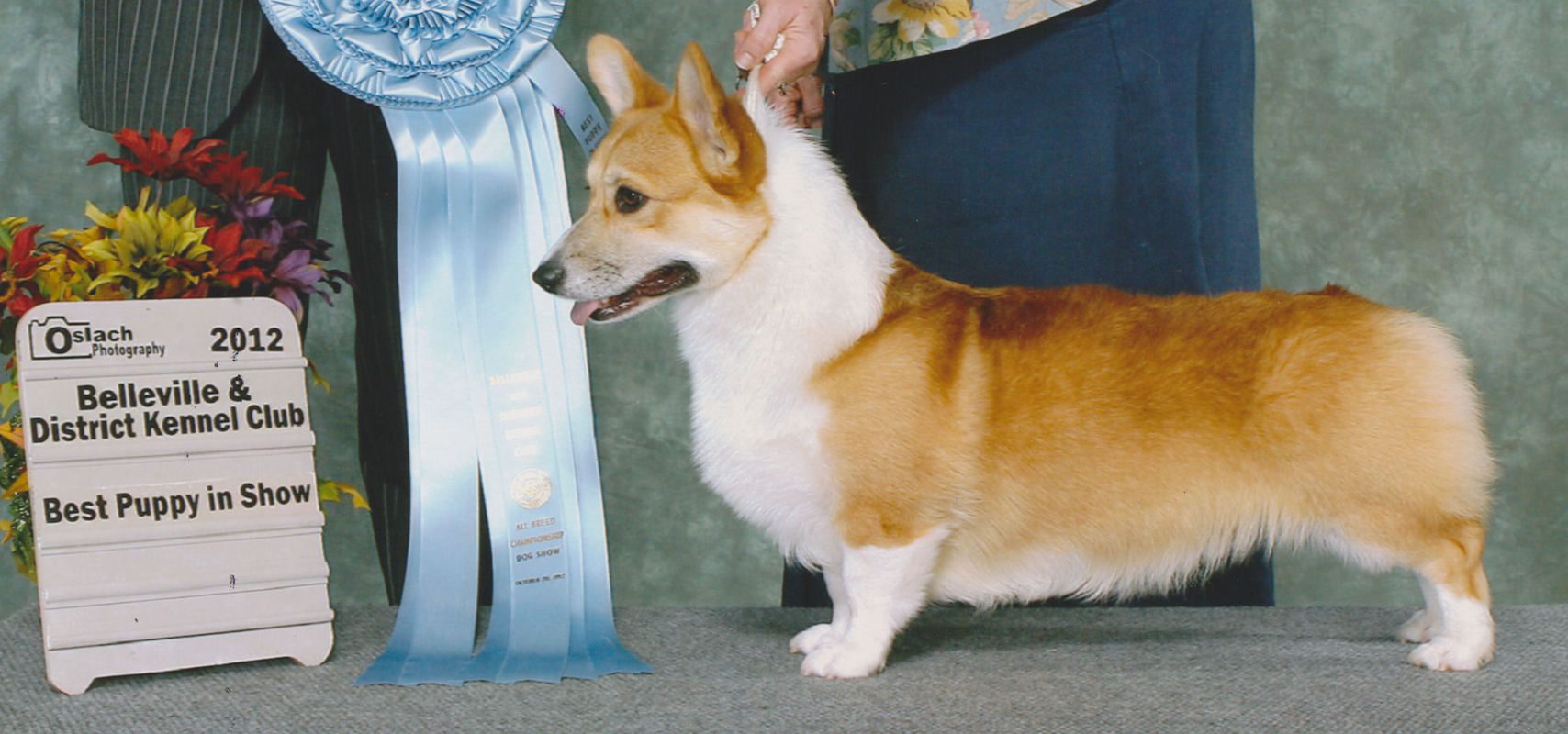
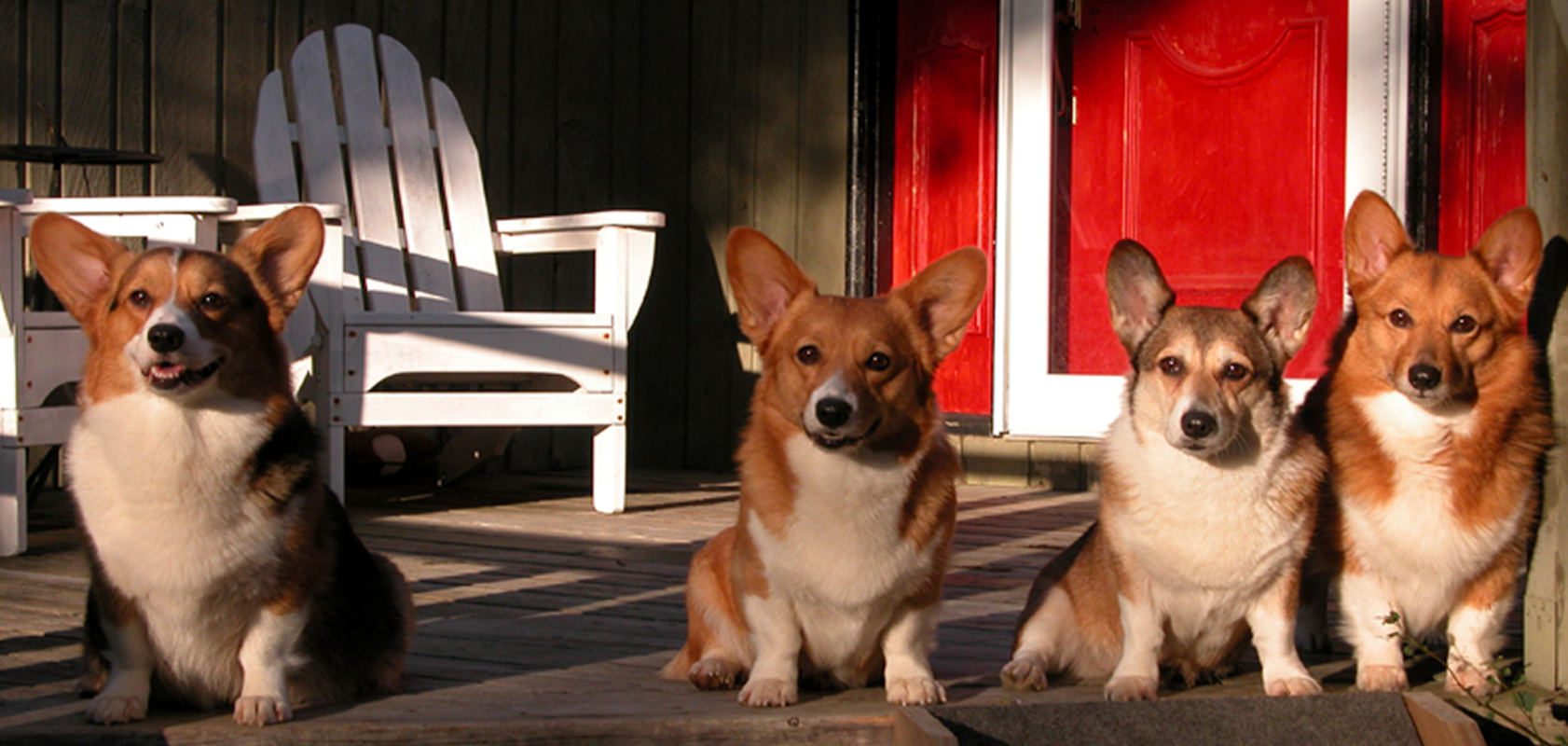
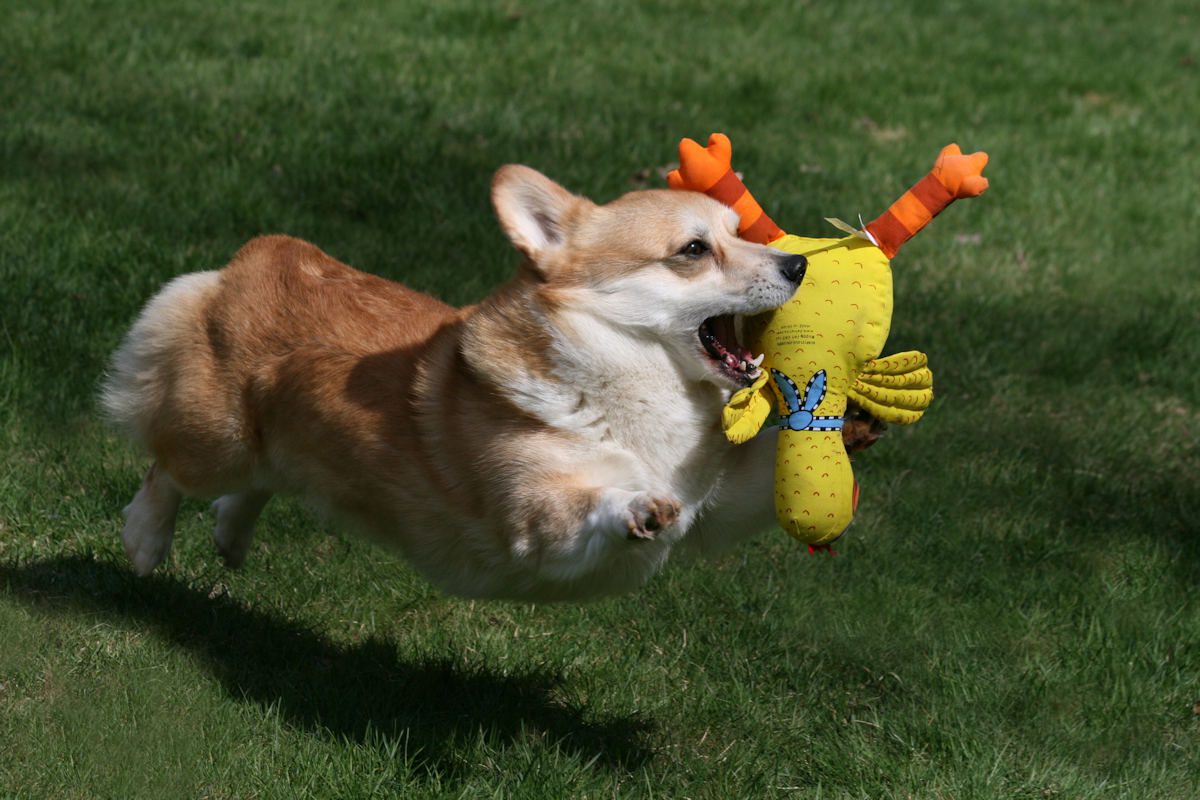
The negative side to this coat is that Corgis do shed. Regular grooming will keep the hair under control, but be prepared for heavy shedding twice a year and milder hair loss all the time.
These are moderately high-energy dogs — they're not hyper, but they do need exercise. After all, Corgis were bred to work.
Despite the breed's weather-resistant coat, Corgis are not meant to live outdoors or in a kennel. Even more important, they are eager and willing to please, and they like to be with their people. If you don't have the time or inclination to allow your Corgi to share your home, get another breed.
Corgis are generally good with children, provided the children are good with the Corgis or dogs in general. Too often, we hear that herding breeds aren't good with children. Understand what you have, both in the type of dog and how your children treat animals, and you'll be much happier with whatever dog (or perhaps goldfish) you choose.
Corgis are incredibly easy to house train, provided you, as the owner, follow through, but the canine intelligence that aids in that training will also help the Corgi to try to get around whatever rules you might set. You have to be smarter than the dog, which isn't always easy. This can be a daily challenge, but one that 'Corgi people' take on with great affection. Be gentle but firm in your training. The best thing to remember is: teach the rules first, and you can spoil them all you want after. If you spoil first and then try the rules, you likely won't succeed. Be smarter than your dog.
